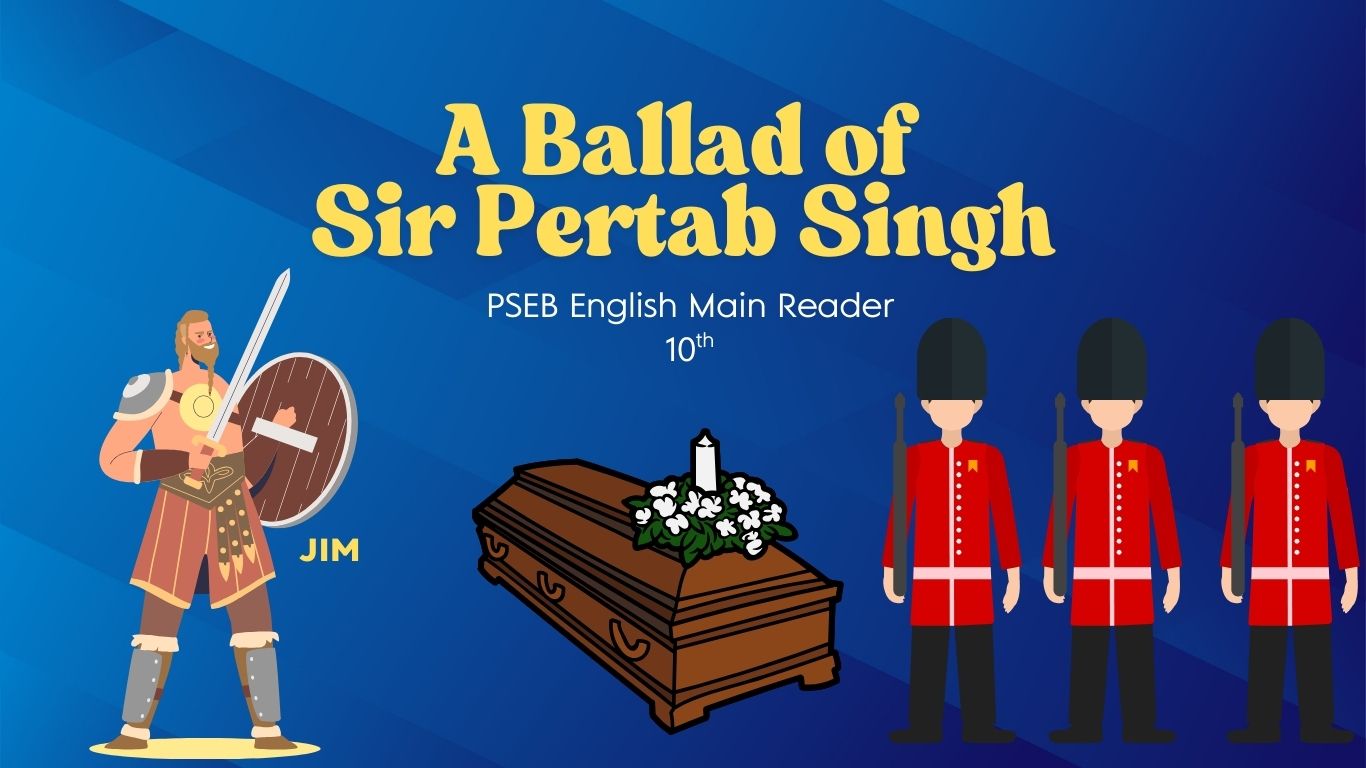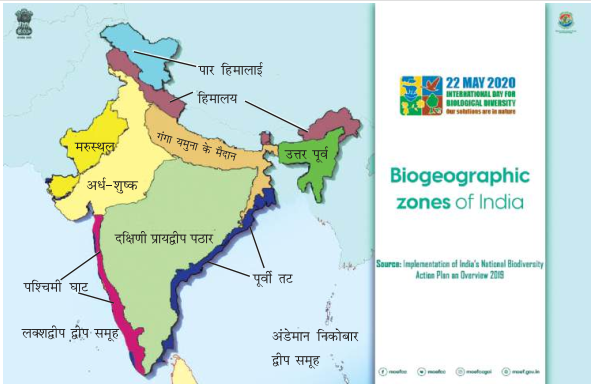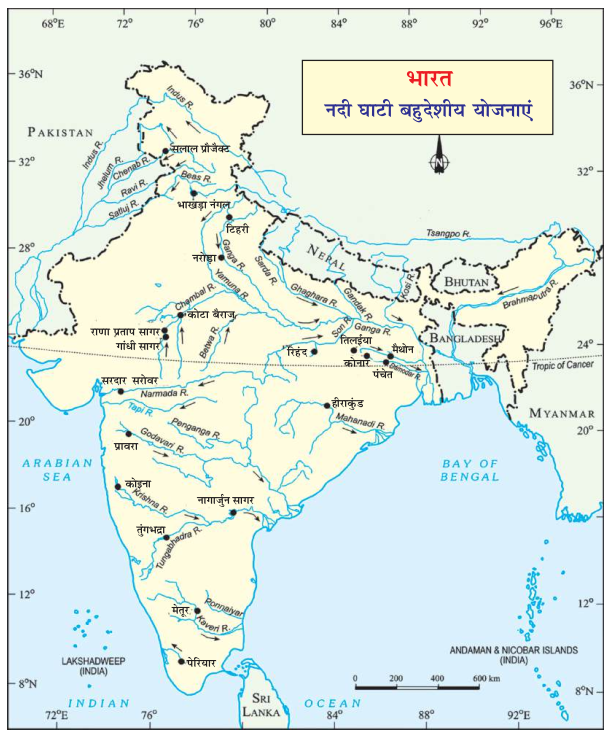“A Ballad of Sir Pertab Singh” – Summary of the Poem
The poem tells the story of Sir Pertab Singh, a noble Indian ruler, and his deep friendship with a young English soldier.
In the first year of a new Emperor’s reign, this young Englishman, a brave soldier, came to Sir Pertab Singh’s “Rose-red House.” They quickly became close friends, sharing a strong bond as fellow soldiers. They rode together, and their shared love for the soldier’s life and war united them. They talked about many things, including love, but agreed that the love of a soldier for his duty and comrades was the greatest.
They spent many happy days together. But one day, the English soldier, Pertab’s friend, died.
When morning came, they prepared the soldier’s body for burial. There were three other Englishmen of his race and religion present, but they needed a fourth person to help carry the coffin (bier). In Jodhpore, they couldn’t find a fourth Englishman.
The Englishmen asked Sir Pertab Singh, a man of high caste, to send a “sweeper” (someone from a very low caste) to help, as a sweeper had no caste to lose by touching the bier of a foreigner.
But Sir Pertab Singh, bowing his head, declared that he himself would help carry his friend. He said, “I have no caste, for I myself am bearing forth the dead.” The others were shocked and warned him that he would lose his high caste by doing this, a loss that would last forever.
Sir Pertab Singh replied that only God knew what he was truly losing that day (his dear friend), and no one else but him would carry his friend away.
So, with Sir Pertab Singh as one of the four bearers, they carried the dead soldier down the steps of the Rose-red House in full view of everyone in Jodhpore.
The next morning, when the grief was still fresh, a priest came to Sir Pertab Singh. He woke Pertab and told him that a terrible thing had happened in Jodhpore the previous day: Sir Pertab Singh had lost his caste by carrying the body of a foreigner.
Sir Pertab Singh’s eyes lit up. He told the priest that the priest’s soul had never understood the true meaning of the words he spoke. He declared that his true caste was above the priest’s or any other, and that Brahmin and Rajput (high castes) were just dust compared to the “immortal line” – the true caste of a soldier. He said this “right soldier’s faith” or caste is as wide as the world, as free as the air, and as pure as a pool of death, belonging to all noble hearts on Earth.
The poem essentially criticizes the rigid caste system and celebrates the universal brotherhood of brave and noble men, especially soldiers, suggesting that true nobility and caste are determined by one’s actions and heart, not by birth.
Hindi Translation of the Poem
सर प्रताप सिंह का गाथागीत (A Ballad of Sir Pertab Singh)
पहला छंद:
उस प्रथम वर्ष में जो सम्राट और राजा था,
एक सवार आया गुलाब-लाले घर में,
प्रताप सिंह के घर में।
दूसरा छंद:
वह युवा था और एक अंग्रेज था,
और एक सैनिक, एड़ी से चोटी तक,
और उसने प्रताप के हृदय में आग लगा दी
जैसे इस्पात इस्पात पर टकराता है।
तीसरा छंद:
भोर के तारों के नीचे वे सवार हुए,
शाम के सूरज के नीचे,
और उनके रक्त ने उनसे गाया जब वे सवार हुए
कि सभी अच्छे युद्ध एक ही होते हैं।
चौथा छंद:
उन्होंने स्त्रियों के प्रेम की अपनी कहानियाँ सुनाईं,
पूर्व और पश्चिम की अपनी कहानियाँ,
लेकिन उनके रक्त ने गाया कि उनके सभी प्रेमों में से
वे एक सैनिक को सबसे अधिक प्रेम करते थे।
पाँचवाँ छंद:
इस प्रकार उनके आनंद के नियत दिन बीते,
जब तक कि अंतिम दिन के अंत में
छाया ने गुलाब-लाले घर को शांत कर दिया
और प्रताप के मित्र का हृदय।
छठा छंद:
जब सुबह हुई, संकरे सीने में
सैनिक का चेहरा उन्होंने छिपा दिया,
और उसकी तेजी से सपने देखती आँखों पर
संकीर्ण ढक्कन बंद कर दिया।
सातवाँ छंद:
वहाँ उसकी जाति और पंथ के तीन लोग थे,
केवल तीन और नहीं:
वे मृतकों को ले जाने के लिए नहीं पा सके
जोधपुर में चौथा।
आठवाँ छंद:
‘ओ महाराज, आपकी अच्छी जाति के
हमें यहाँ एक मेहतर भेजो;
एक मेहतर के पास खोने के लिए कोई जाति नहीं है
एक विदेशी अर्थी से भी।’
नौवाँ छंद:
‘क्या आवश्यकता, क्या आवश्यकता?’ प्रताप सिंह ने कहा,
और अपना राजसी सिर झुकाया।
‘मेरी कोई जाति नहीं है, क्योंकि मैं स्वयं
मृतक को आगे ले जा रहा हूँ।
दसवाँ छंद:
‘ओ महाराज, ओ भावुक हृदय,
बुद्धिमान बनो, फिर भी सोचो:
आज जो तुम खोते हो वह खो गया है
जब तक अंतिम सूर्य अस्त न हो जाए।’
ग्यारहवाँ छंद:
‘ईश्वर ही जानता है,’ प्रताप सिंह ने कहा,
‘आज मैं जो खोता हूँ:
और मेरे बिना कोई मनुष्य का हाथ नहीं
मेरे मित्र को दूर ले जाएगा।’
बारहवाँ छंद:
राजसी और धीमे और कंधे ऊँचे
सभी जोधपुर की दृष्टि में
मृतक गुलाब-लाले सीढ़ियों से नीचे उतरे
चार वाहकों द्वारा उठाए हुए।
तेरहवाँ छंद:
जब भोर ने दुःख का दीपक फिर से जलाया
जलते हुए पूर्व के भीतर
प्रताप सिंह के पास एक शब्द आया,
एक पुजारी का कोमल शब्द।
चौदहवाँ छंद:
वह जागा, और जैसे ही वह जागा
वह सब सफेद वस्त्रों में बाहर निकला,
और ब्राह्मणों को वहाँ झुकते हुए देखा
कठोर सुबह की रोशनी में।
पंद्रहवाँ छंद:
‘हाय! ओ महाराज, हाय!
ओ महान प्रताप सिंह!
क्योंकि यहाँ जोधपुर में कल
एक भयानक बात हुई।
सोलहवाँ छंद:
‘एक भयानक बात,’ प्रताप सिंह ने कहा,
‘ईश्वर और मेरा हृदय अच्छी तरह जानते हैं
सत्रहवाँ छंद:
‘मैंने एक मित्र खो दिया।’ ‘और भी भयानक!
इन सीढ़ियों से नीचे गए, तुम गुजरे
सभी जोधपुर की दृष्टि में तुमने खो दिया
ओ महाराज – तुम्हारी जाति।’
अठारहवाँ छंद:
तब प्रताप की आँखों में प्रकाश उछला
जैसे धूएँ में ज्वाला उछलती है,
‘हे पुजारी! तेरी आत्मा ने कभी नहीं जाना
वह शब्द जो तेरे होठों ने कहा है।’
उन्नीसवाँ छंद:
‘मेरी जाति! जान लो कि एक जाति है
मेरी जाति या तेरी जाति से ऊपर,
ब्राह्मण और राजपूत तो धूल हैं,
उस अमर पंक्ति के लिए:
बीसवाँ छंद:
‘दुनिया जितनी चौड़ी, हवा जितनी स्वतंत्र,
मृत्यु के कुंड जितना शुद्ध
पृथ्वी के सभी महान हृदयों की जाति
सच्चे सैनिक का विश्वास है।’
Enjoying the Poem:
1. Rewrite the poem ‘A Ballad of Sir Pertab Singh’ in prose (one sentence for each stanza)
-
Stanza 1: In the first year of a new Emperor’s rule, a rider arrived at the Rose-red House, the home of Pertab Singh.
-
Stanza 2: He was a young Englishman and a complete soldier, and he immediately connected with Pertab’s heart like steel striking steel.
-
Stanza 3: They rode together under the stars and sun, and their shared blood sang to them that all good wars are fundamentally the same.
-
Stanza 4: They shared stories of love from both East and West, but their deepest shared feeling was the love for a true soldier.
-
Stanza 5: Their joyful days continued until, at the end of a final day, Death silenced the Rose-red House and took the life of Pertab’s friend.
-
Stanza 6: The next morning, they placed the soldier’s face in a narrow coffin and closed the lid over his eyes that had once dreamt.
-
Stanza 7: Only three men of his own race and religion were present, and they couldn’t find a fourth person in all of Jodhpore to help carry the dead.
-
Stanza 8: They respectfully asked Pertab Singh, a man of high caste, to send a sweeper, as a sweeper wouldn’t lose caste by carrying a foreigner’s bier.
-
Stanza 9: Pertab Singh, bowing his princely head, questioned the need and declared that he himself would carry the dead, stating he had no caste in this act.
-
Stanza 10: The others, passionate but concerned, urged him to be wise, warning that the caste he would lose that day would be lost until the end of time.
-
Stanza 11: Pertab Singh responded that only God knew what he was truly losing that day (his friend), and insisted that no one else would carry his friend away without him.
-
Stanza 12: Stately, slowly, and shoulder-high, in the sight of all Jodhpore, the dead soldier was carried down the rose-red steps by four bearers.
-
Stanza 13: When dawn brought renewed grief in the East, a priest came with a soft word for Pertab Singh.
-
Stanza 14: Pertab woke and, dressed in white, went out to see the Brahmins bowing in the harsh morning light.
-
Stanza 15: The priest lamented that a fearful thing had happened in Jodhpore the previous day, a loss concerning the noble Pertab Singh.
-
Stanza 16: Pertab Singh acknowledged that a fearful thing had indeed happened, known to God and his own heart: he had lost a friend.
-
Stanza 17: The priest corrected him, saying it was more fearful still, as Pertab Singh had lost his caste by carrying the body in sight of all Jodhpore.
-
Stanza 18: Then, a light leaped in Pertab’s eyes like a flame in smoke, and he told the priest that his soul had never understood the true meaning of the words he spoke.
-
Stanza 19: He declared that his true caste was above any other, and that Brahmin and Rajput were mere dust compared to the immortal line of true soldiers.
-
Stanza 20: He defined this “right soldier’s faith” as being as wide as the world, free as the air, pure as the pool of death, and the caste of all Earth’s noble hearts.
2. Write a summary of the poem ‘A Ballad of Sir Pertab Singh’ in your own words.
* (Please see the summary provided in the previous response.)
3. What is the central idea of the poem ‘A Ballad of Sir Pertab Singh’?
* The central idea of the poem is that true nobility and caste are determined by one’s actions, character, and inner worth, particularly by courage, loyalty, and a sense of universal brotherhood, rather than by birth or societal rules. The poem criticizes the rigid caste system and elevates the “soldier’s faith” – a bond shared by all noble hearts – above traditional caste distinctions.
4. Who was Sir Pertab Singh?
* Sir Pertab Singh was a noble Indian ruler, presumably a Rajput (as implied later in the poem), known for his bravery, princely stature, and a strong sense of honor and friendship. He resided in the “Rose-red House” in Jodhpore.
5. Why did he immediately like the English soldier?
* He immediately liked the English soldier because the Englishman was also a “soldier, hilt and heel,” meaning a complete and true soldier. Their shared identity and values as soldiers created an instant bond and mutual respect (“he struck fire in Pertab’s heart / As the steel strikes on steel”).
6. How did the two comrades spend their days?
* The two comrades spent their days riding together (“Beneath the morning stars they rode, / Beneath the evening sun”), sharing tales of love from different cultures (“Their tales of East and West”), and reveling in their shared passion for the soldier’s life. Their bond was strong, and they found joy in each other’s company.
7. Why was Pertab Singh asked to send a sweeper when the English soldier died?
* Pertab Singh was asked to send a sweeper because, according to the prevailing caste rules, touching the bier (coffin) of a foreigner (an “alien bier”) could lead to a loss of caste for a high-caste Hindu. A sweeper, belonging to a very low caste, was considered to have “no caste to lose” by performing such a task.
8. What was the problem that arose when the Englishman died?
* The problem that arose was the need for a fourth person to help carry the Englishman’s bier to his funeral. There were only three Englishmen of his race and creed available, and according to tradition, four bearers were needed.
9. What, according to the priests, had Pertab Singh lost? Why?
* According to the priests, Pertab Singh had lost his caste. He lost it because he, a high-caste Rajput, had personally helped carry the bier of his English friend, a foreigner, an act considered defiling and a violation of caste rules.
10. A ballad is a long narrative poem which tells a simple story. Read some other famous ballads. You can choose from:
(i) The Ballad of Father Gilligan by W.B. Yeats.
(ii) A Diverting History of John Gilpin by William Cowper.
(iii) Robin Hood and Allen-A-Dale (Anonymous)
* (This is a suggestion for further reading, not a question to be answered from the text itself.)
11. Have you noticed that in some stanzas the first line rhymes with the third while in some others, the second line rhymes with the fourth line? Study these rhyming lines carefully.
* Yes, the poem uses different rhyme schemes.
* Many stanzas follow an ABCB rhyme scheme (e.g., Stanza 1: first/King, House/Singh – King and Singh rhyme).
* Some stanzas appear to have an AABB rhyme scheme or a near rhyme (e.g., Stanza 2: Englishman/heel, heart/steel – heel and steel rhyme).
* The rhyming is consistent within each quatrain, mostly following the ABCB pattern typical of many ballads.
12. Write a small paragraph on Caste System. (50-100 words)
* The caste system is a traditional social hierarchy, historically prominent in India, that divides people into rigid groups based on birth. It dictates social status, occupation, and interactions, often leading to discrimination and inequality, particularly against those in lower castes. While officially outlawed, its influence persists in some social customs and attitudes, posing challenges to social justice and equality. The poem “A Ballad of Sir Pertab Singh” critiques such rigid divisions, advocating for a higher “caste” based on noble actions and universal brotherhood.



